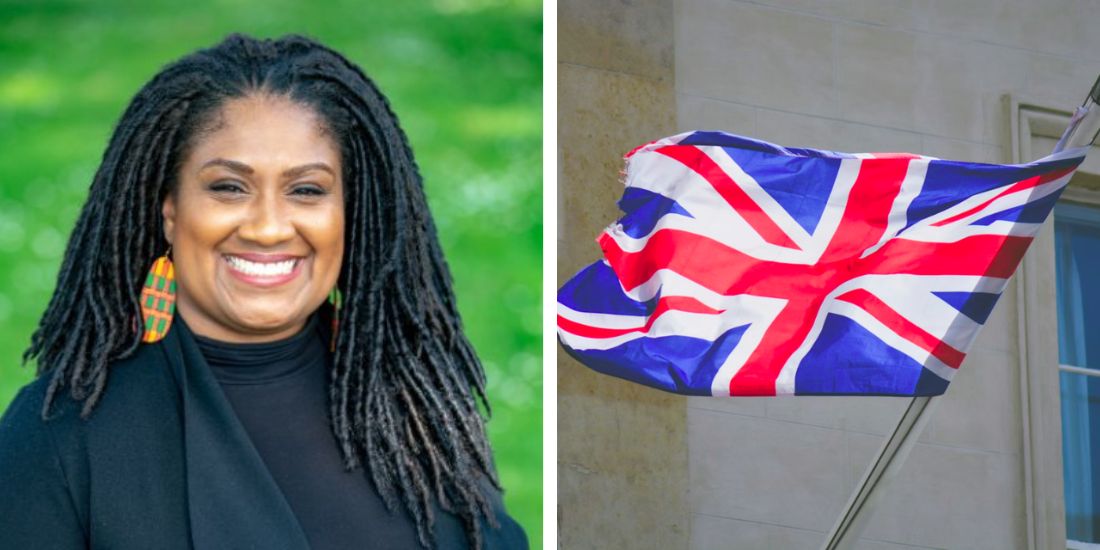The good times of yesteryear appear far more pleasurable than the pain you’re dealing with in the present and even I have trouble deciphering if my memories of those previous better days were fictional or if I’m overlooking the worst of them.
However, race relations are an area where an early millennial like me and Gen X’ers vividly remember the general vibe of our environment and the lack of tension that was pulled on our nation’s psyche.
Recently, columnist David Marcus sent out a post on X that created a split reaction from people of all races and political philosophies when he declared how the “race thing” was resolved in the late 90s by Generation X.
“Gen X knows. We did it, on the race thing. Nobody gave a shit. It was 1998 and everyone was fine. We had it. It was done. Fixed.”
“I’ve spoken about this with so many friends. Kids all watched the same tv shows, listened to lots of different music together,” stated Moms for Liberty Co-Founder Tiffany Justice.
Dr. Nikki M. Johnson contended with Marcus’ statement, “I'm a Gen Xer, and this wasn't my reality. We didn't pretend race or racism didn't exist. We just didn't center our lives around it, and we dealt with our problems face-to-face instead of behind a keyboard.”
And to be expected, there was a strong disagreement from farther left leaning individuals who viewed America from the opposing perspective.
“Did you speak to any actual Black or Brown people before you said this? I was in high school in this time period in St Louis, MO and I can assure you, post racial nirvana was NOT reached,” lamented Singer and Songwriter Rissi Palmer.
Much like any short post, depending on how you’re feeling in the moment, your relationship to the author of it and willingness to translate it in good faith will determine your interpretation of his statement.
Bad faith interpreters translated his proposition as meaning racism was abolished and nothing negative ever happened for racially motivated reasons. They assumed that Marcus was some naïve white man who lived in a bubble and never spoke to anyone with the slightest darkness of pigmentation so he could adhere to his supposed racial harmony narrative.
Marcus is not stating that racism stopped in 1998 or that racists no longer existed in America at that time: he’s stating that race relations were strong and the need to center race as being of grand importance was minimal.
Yes, he says absolute words like “fixed” and “done” but him being purposefully hyperbolic doesn’t take away from the general attitude of that time.
Race relations, as a term, is a bit arbitrary because it’s hard to measure outside of surveying opinions at scale and assessing where most of those people fall. However, race relations in the modern era are strongly defined by mass media coverage of specific incidents more so than what is happening in an individual’s life.
According to Pew Research, in 1998 leading into 1999 was when public opinion about race relations shifted from being “generally bad” to “generally good” and climbed to its peak in 2009.
However, after specific racial incidents, like the death of Michael Brown and Freddie Gray, the public’s opinion took a marketed nosedive back into seeing race relations as “generally bad” once again.
Race relations is a direct indicator of the amount of propaganda pushed by mass media to alter our feelings about one another and when a significant and tragic event happens in one corner of our massive nation, we begin to question if our immediate environment was a façade the entire time.
Marcus and I aren’t being nostalgic when about the irreverence of the late 90s and I’d be the first person to admit that we didn’t have a perfect society (and we never will).
However, the combination of corporate media consolidation post-telecommunications act of 1996 and the advent of social media virality has only streamlined a 24/7 nihilism-fest dedicated to highlighting rare unfortunate incidents as being commonplace and discarding random acts of kindness as being purely accidental.
Why can’t we all just get along? Because there is an economic model in keeping us separated and angry at each other.





